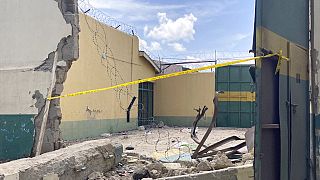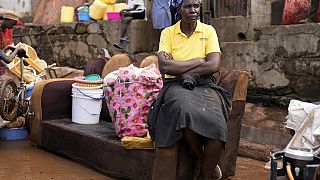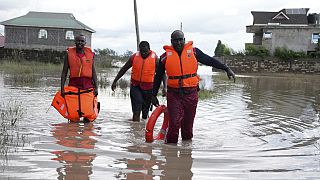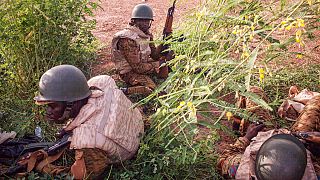Health
Preliminary studies of Ebola survivors in West Africa are showing that those who survived the epidemic are experiencing a range of long term health effects, new studies show.
“While an end to the outbreak has been declared, these survivors are still struggling with long-term problems,” said Dr. Lauren Bowen of the National Institute of Neurological Disorders and Stroke (NINDS), who worked on one of the studies.
The researchers announced that survivors reported a high prevalence of eye, musculoskeletal and neurological complications.
Nearly 29,000 people in West Africa were infected with Ebola during the 17-month outbreak, which started in 2014. Roughly 11,300 died, but there are about 17,000 survivors of the infection in Guinea, Sierra Leone and Liberia and there’s concern that their health issues need to be managed in part to prevent another outbreak.
“The most striking finding of all was that a full 10 percent of those survivors had something called uveitis, an eye disorder that can lead to blindness. It’s something you can treat but if you don’t provide the follow up to Ebola survivors, then people are in danger of losing their sight,” said Dr. Bowen.
The research team followed 82 Ebola survivors and found most continued to have brain symptoms for six months or longer after they recovered from their initial bout with the virus.
These included weakness, headache, memory loss, depressed mood and muscle pain. Two people were suicidal and one had hallucinations, the researchers reported.
An especially puzzling and possibly dangerous finding was that a number of the male survivors were found to have Ebola in their semen, in some cases more than a year after having Ebola symptoms.
“Some of the men who had negative semen tests once or twice, later had positive tests, suggesting that it’s possible they could be shedding the virus intermittently,” she says.
The preliminary results of the NIH study of Ebola survivors were announced on the same day that a Scottish nurse was readmitted to a London hospital for a third time since contracting Ebola.
Pauline Cafferkey contracted Ebola in Sierra Leone while volunteering to help during the epidemic. “She’s had quite a difficult course of surviving Ebola,” a doctor at the Royal Free Hospital said.











01:13
WHO approves new cholera vaccine that could help fight surge in cases
01:30
UN reports widening global inequality in sexual and reproductive health and rights
01:10
Israeli troops leave Gaza Al-Shifa hospital laying in ruins
00:40
Easter sunday: pope calls for the end of conflicts
01:30
Gaza: visiting doctors 'stunned' about situation of wounded palestinian children
02:23
Muslims in Sierra Leone navigate heat during Ramadan